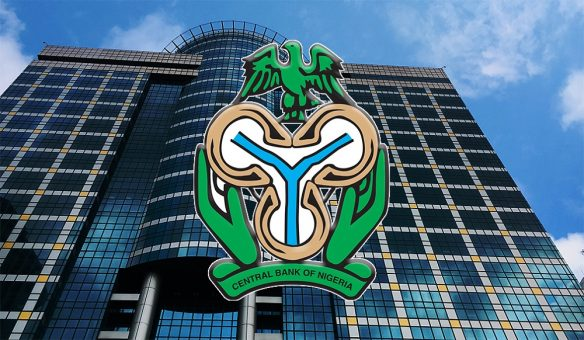By Sylvester Enoghase
LAGOS – The lingering uncertainty surrounding government trade policy and fiscal tightening is weighing on business confidence, analysts have lamented.
They emphasised that inflation risks may impacts Credit to the Private Sector (CPS) growth in second half of 2025.
They also argued that as the outlook for Nigeria private sector activity remains fragile, inflationary pressures have resurfaced, driven by higher input costs, particularly due to potential supply chain disruptions and the pass-through effects of recent tariff increases, while external demand remains weak
Besides, they warned that CPS growth will remain subdued in the near term, constrained by the prevailing tight monetary policy stance due to potential supply chain disruptions and the pass-through effects of recent tariff increases.
But, a potential pivot toward monetary easing in the second half of 2025 could provide some support for a gradual recovery in CPS growth over the medium term.
According to data from the Central Bank of Nigeria (CBN), Credit to the Private Sector (CPS) increased by 4.7% y/y to NGN77.83 trillion in May (May 2024: NGN74.31 trillion).
Cordros Researchers in their Weekly Economic and Market Report, cautioned that the CPS growth may remain subdued in the near term, constrained by the prevailing tight monetary policy stance
“We note that the pace of growth has slowed significantly relative to the previous year, largely due to the reduced impact of currency depreciation on banks’ foreign-denominated assets, following the recent stabilization of the naira as well as the CBN’s tight monetary policy. At the same time, credit to the government declined by 11.6% y/y to NGN25.07 trillion (May 2024: NGN28.38 trillion), indicating reduced government borrowing from domestic banks for deficit financing.
“Overall, broad money supply (M3) rose by 19.9% y/y to NGN119.00 trillion, following increases across narrow (+20.9% y/y) and quasi (+19.8% y/y) money supply. On a month-on-month basis, the CPS declined moderately by 0.3% to NGN77.82 trillion in May (April: +2.1% m/m to NGN78.08 trillion).
“Looking ahead, we expect CPS growth to remain subdued in the near term, constrained by the prevailing tight monetary policy stance. However, a potential pivot toward monetary easing in the second half of 2025 could provide some support for a gradual recovery in CPS growth over the medium term”, they explained.
Mr Adewale Oyerinde, Director-General of the Nigeria Employers’ Consultative Association, NECA, in a chat with Daily Independent, told Daily Independent, said that the pace of CPS growth has slowed compared to the previous year because of the reduced impact of currency depreciation on banks’ for CBN’s tight monetary policy. eign-denominated assets as well as the
He added: “We are worried that lingering uncertainty surrounding Nigeria trade policy and fiscal tightening is weighing on business and eroding the investors ‘confidence.
“We are optimistic that in the absence of sustained disinflation and a recovery in export demand by the private sector, there would be a further moderation in business activity in the near term”.
Dr. Muda Yusuf, CEO, Centre for Promotion of Private Enterprise (CPPE), said the nation’s inflation risks remain tilted to the upside, particularly due to potential supply chain disruptions and the pass-through effects of recent president Donald Trump of the U.S. tariff increases.
He said: “I suggest Federal government to maintain the funds rate in the near term as it continues to monitor the inflation trajectory.
“This is because, the escalation of production and operating costs for businesses, leading to erosion of profit margins, drop in sales, decline in turnover and weak manufacturing capacity utilisation impacted negatively on non-oil export sector which holds enormous potentials to boost the economy”.
“We expect domestic investors will continue to contribute the most to total transaction value, with the decline in yields in the fixed income market supporting buying activities. We also expect the relative naira stability to support increased participation from foreign investors in the equities market”.
An executive director of a new generation bank in Nigeria, who craves anonymity, told Daily Independent, that the lingering uncertainty surrounding global trade policy and fiscal tightening is weighing on business confidence in the country.
He said: For a recovery in export demand, we anticipate a further moderation in business activity in the near term as we advocate for the review of the medium-term fiscal frameworks that can reassure lenders that governments are fiscally responsible and lower financing costs.
“Government efforts to drive investment in the agricultural sector to increase productivity to meet local demand and ensure food security, while supporting product standardisation for export-value addition.”
Ambassador Tunde Adetunji ,CEO and founder of the Africa Heritage Foundation, Atlanta Georgia, USA, told Daily Independent, that there is a need for urgent steps to be taken to ensure a better macroeconomic management framework to stabilise the exchange rate, eradicate the challenge of liquidity in the foreign exchange market and to stem the current depreciation of the Naira.
He advocated the need for business friendly reforms and policies that will restore confidence, improve the regulatory environment and address insecurity.
He said: “There is need for not only competitive returns, but also investors’ confidence and an enabling environment of which clear and robust policies, good infrastructure and business friendly regulations are a major component”.
